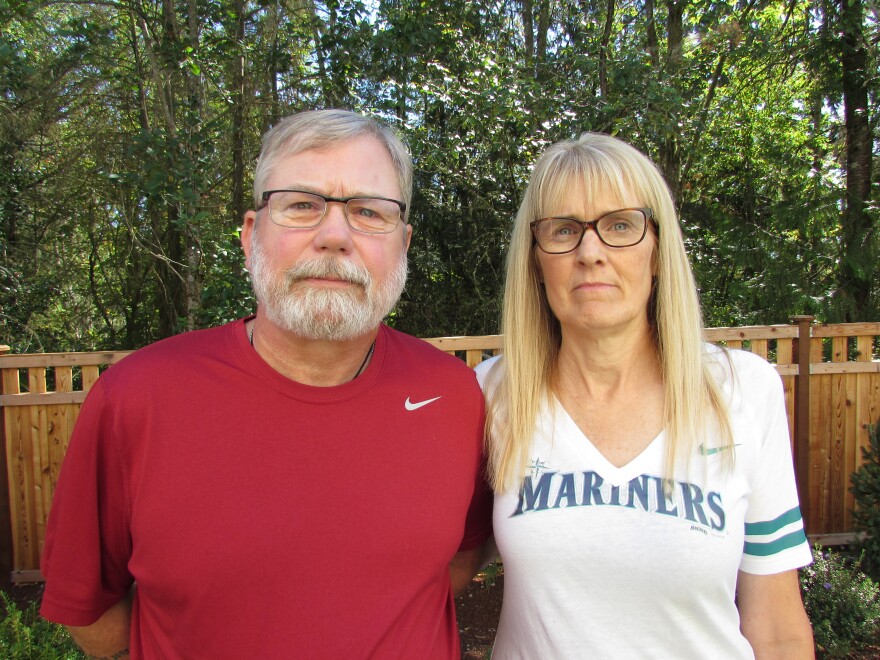Marilyn Balcerak said she can predict that the birthdays of her son and stepdaughter will be hard. What’s harder to predict are the random events that will take her back to the day when her son James — who had autism and struggled with depression — killed his stepsister Brianna and then himself in 2015. One of those events was the shooting at the high school in Florida last week.
Balcerak said she’s distraught for the victims — and for the young man who killed them.
“I was sitting in bed last night, I wanted to go see this kid down in jail in Florida,” she said. “I know what he did was horrible, was beyond horrible. But he’s alone. He’s there with everybody thinking he’s a monster and he had mental issues. He should have never been able to have a gun.”
Last week’s shooting at the Florida high school again raised questions of how to keep guns out of the hands of people in mental health crisis. Washington state is still in the early stages of implementing Initiative 1491, which was approved by Washington voters in 2016. It allows families and friends to petition for removal of someone’s guns if a judge agrees the person is in crisis.
Balcerak said the best gift to the parents of the victims in Florida will be to take action against gun violence.
“I’m not saying that any law is going to stop all school shootings or anything like that. But maybe it will stop the next one, maybe it will stop 50 percent," she said. "To me, that’s what gives me solace – this bill happened to come up at the time, we were able to help, and something good came out of something so tragic.”
Balcerak and her partner Matt Smith were the “citizen sponsors” of the initiative to create “extreme risk protection orders.” Smith said the orders can buy time for someone to get help with their mental illness.
“Our experience was almost hopeless on how to help our children, help our son,” he said. “This gives another family now when they see someone in crisis, we have an option now, that we can try to save their lives.”
Renee Hopkins, CEO of the Alliance for Gun Responsibility, is part of the group working to implement the orders. She said no one has a comprehensive tally of how many orders have been sought or granted yet statewide, but they have been used in King County and a few other jurisdictions. In most cases, she said it is law enforcement officials who have sought the orders. A more detailed report on their use is due in August.
David Combs campaigned against Initiative 1491 out of concerns that it would stigmatize people with mental illness and unfairly curb their rights. Combs has bipolar disorder and is a support group facilitator for people with mental illness.
He said he remains concerned that the orders give too much latitude to the courts and allow judges to grant the orders based on a diagnosis of mental illness “even in the absence of clear evidence that the individual is at risk of harm to themselves or others.” He added that the risk of harm “should be the benchmark for these types of orders, not simply having a mental illness such as [an] anxiety disorder.”
Hopkins said another bill has failed to pass in Olympia that would put new age limits on the type of weapon used in recent school shootings, as well as a potential school shooting in Everett last week that was interrupted by the teen's grandmother.
“We have a really important policy that’s stalled in both chambers right now that would have addressed exactly what happened in Florida, that would put enhanced background checks on assault weapons, that would require someone to be 21 years old in order to purchase one,” she said. “It’s vitally important that our electeds take the action they need to take to move that policy forward.”
According to the Spokesman Review, the bill’s House sponsor pulled it from the schedule, saying opposition from the National Rifle Association made it unlikely to pass.


